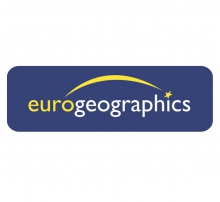EuroSDR/Eurogeographics Seminar - Data Linking by Indirect Spatial referencing frameworks: Place names and other core data
This seminar, co-organized by EuroSDR and Eurogeographics, aims at studying the usage of indirect spatial referencing systems – place names and other core data - for data linking.
Whereas direct referencing refers to traditional geocoding, i.e directly attaching coordinates to an entity; indirect spatial referencing is achieved by associating an entity with a spatial entity through reference of a URI only. In some contexts, this methodology has several pros like human readability of location, single storage of authoritative data and more consistent and accurate resources. For example, place names are one of the most ancient and widely used frameworks to locate as well as to interconnect a wide range of information assets, like databases, structured web content, pdf reports, regulations and maps.
The scientific and technological evolutions in information infrastructure, information retrieval, as well as in knowledge representation and machine learning have offered even more opportunities in using commonly used identifiers of spatial entities, like place names but also administrative units, buildings with identifiers, as a key component to locate and interconnect pieces of information. Remaining scientific challenges are, to name but a few, the automatic identification, interpretation and alignment of textual references to places or other spatial entities in information assets; the definition of tractable spatial footprints for spatial entities used for indirect referencing; handling the semantics of the link between the information and the locating entity; as well as managing heterogeneous referencing schemes (interoperability).
Following the classical structure of EuroSDR and Eurogeographics seminars, this seminar will be organised around presentations of participants’ experiences in these domains, scientific literature reviews and discussions to propose answers to the following questions: what are the new requirements for indirect spatial referencing services or data linking for our societies, what does it imply in terms of data structure, services and organisation? One possible output of the workshop will be the design of an hackaton to engage scientific communities and developers on pending issues and new challenges based on ‘real problems illustrated with data’.
Presentations are welcome both from practical experiences, prototype developments and from the perspective of science–what is the state of the art in this domain. To participate to the program, please contact the organizers before June 20th 2018 with a summary of your intended presentation:
benedicte.bucher@ign.fr ; thomas.ellett@kartverket.no ; esa.tiainen@maanmittauslaitos.fi
Important dates
- June 20th : Deadline to apply to participate to the program
- June 30th : Program announcement
- July 30th : Deadline to apply to attend the seminar
- September 4th 5th : Seminar (Starting at 1:30 pm the first day and finishing at 4:00 pm the second day)
General information
Address: ISC-PIF, 113 Rue Nationale, 75013 Paris, FRANCE
Date: September 4th - 5th 2018 (Starting at 1:30 pm the first day and finishing at 4:00 pm the second day)
Contacts: Bénédicte Bucher (IGN, France), Thomas Ellett (Kartverkert, Norway), Esa Tiainen (NLS, Finland)
For up-to-date information, please check the Workshops webpage.

